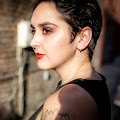So far this week we’ve got a top three thing going. KAK gave us her top three mistakes in crafting a compelling opening and Jeffe gave us her (top) three principles for crafting a beginning.
Do I have three things I can pinpoint about beginnings?
Honestly, I’m not a craft writer. I didn’t take writing classes, I’m a Medical Scientist. I didn’t study plays or story structure, I studied biology textbooks. But the one thing I did do, and continue to do multiple times a week: read.
My writing buddy and I took a break from our writing sprints and ended up talking about our first novel. Neither of us had a clue what we were doing, but we’d read so many books and had started to feel like we were running out of things to read when we sat down to try our hand at creating one. We weren’t aware of three act structures or hooks. We just knew what it felt like to pick up a good book and not want to put it down. So that was our goal. Write an opening that will make it difficult to put it down.
Yes, it’s infinitely easier to read a list and attempt to check each point off. Jeffe’s list is a really good one. But don’t stress about jamming so much into your first sentence that you lose the feels. I don’t have a list, but I can tell you about the feels.
When you pick up a historical fiction you know right off the bat that it’s historical because of the old-timey feels. When you pick up a mystery you’re immediately enveloped in the story’s unsure feels. When you pick up a science fiction your brain goes right into technology feels.
Think about the last few books that you’ve read. The good ones bring out the feelings associated with what type of book it is. The not so good ones…I know I’ve recently hit some that took a couple pages to give me a sense of story and guess what, I DNF’d those.
Who else out there writes with the feels instead of a list? Just jump in and go—giddy up!








